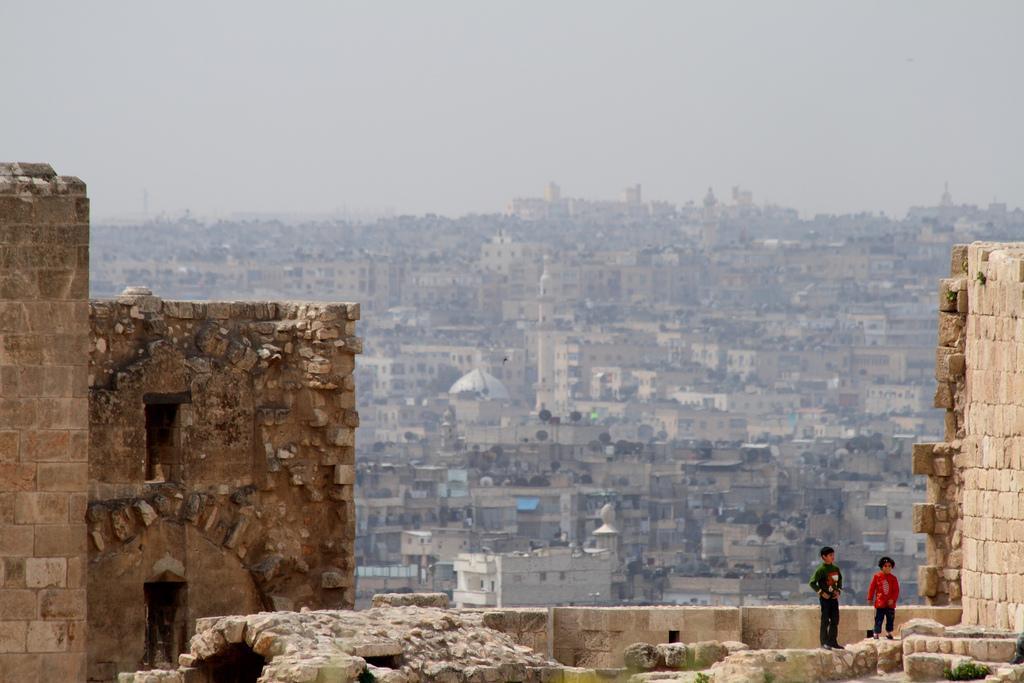‘No Knives in the Kitchens of This City’ by Khaled Khalifa
William Armstrong - william.armstrong@hdn.com.tr

‘No Knives in the Kitchens of This City’ by Khaled Khalifa, translated by Leri Price (American University in Cairo Press/Hoopoe, 224 pages, $16.95)
The protagonist of Syrian author Khaled Khalifa’s many-charactered novel is Aleppo itself. Today the victim of immense destruction in Syria’s vicious civil war, in “No Knives in the Kitchens of This City” Aleppo frustrates, nurses, intimidates, and welcomes various family members who drift in and out of the narrative. Through its many trials, the ancient retains a core that anchors the novel.
Despite being little over 200 pages, the book takes the form of a sprawling multi-year epic, extending from the First World War to the U.S. occupation of Iraq. Its narrator was born in the same week as the 1963 coup that brought the Baath party to power. “My mother thought that my birth … had been severely mistimed and that, like the many military coups in Syria, it would soon be forgotten,” he observes. “I thought a lot about the pain of my life, connected as it was to the Party’s coup d’état and assumption of power. The Party and I were living parallel lives which never met.”
Other characters include the narrator’s mother, draped in melancholy and regret; his sensitive violinist brother Rashid; his mercurial and unpredictable sister Sawsan; and his brave, gay musician uncle Nizar. As the narrator observes at one point: “Everything in the house gave the impression of an upper-class family gone bankrupt.” Social malaise is everywhere and we witness the family’s fortunes deteriorate in parallel with the deterioration of the city. Despite the melodramatic personal traumas that its characters go through, “No Knives in the Kitchens of This City” remains primarily a political novel.
Khalifa paints a delicate portrait of a situation where the past is both traumatic but also something to be nostalgic about. Sections set in the middle of the 20th century describe a time when Egypt was still the cultural center of the Arab world and many in Syria looked to Paris as a metropolitan center. But Aleppo declines as the years go on. Ominously, the social and political stasis that sets in is described as the “incubator of contemporary demons.”
There is a boom in construction and corruption, turning large swathes of the city into slums unfit for human habitation. Crime is rampant and fundamentalism is on the rise. “Rough, uncultured countryside smells lingered in the air and corrupted the breeze … women had acid thrown on their thighs because they were wearing short skirts.”
These developments are not directly linked to the Party, but they come in parallel with its tightening grip. Aleppo becomes “a festival of veritable insanity and strange odors, a city given over to ceaseless fear, a city of retribution, whimpering under the appetites of the mukhabarat and the corrupt officials who were proficient only in loyalty, or dancing dabka in circles during presidential referendums.”
The book’s dizzying cast of characters – three generations of family members, friends, rival and lovers - sweep in and out over 200 pages. The leave the city for a while before returning like prodigal children. Through their reflections a polyphonic, psychologically complex portrait of Aleppo emerges. While the novel is not long or focused enough to be truly satisfying, for those who know Aleppo “No Knives in the Kitchens of This City” will be a poignant read.
* Follow the Turkey Book Talk podcast via iTunes here, Stitcher here, Podbean here, or Facebook here, or Twitter here.










